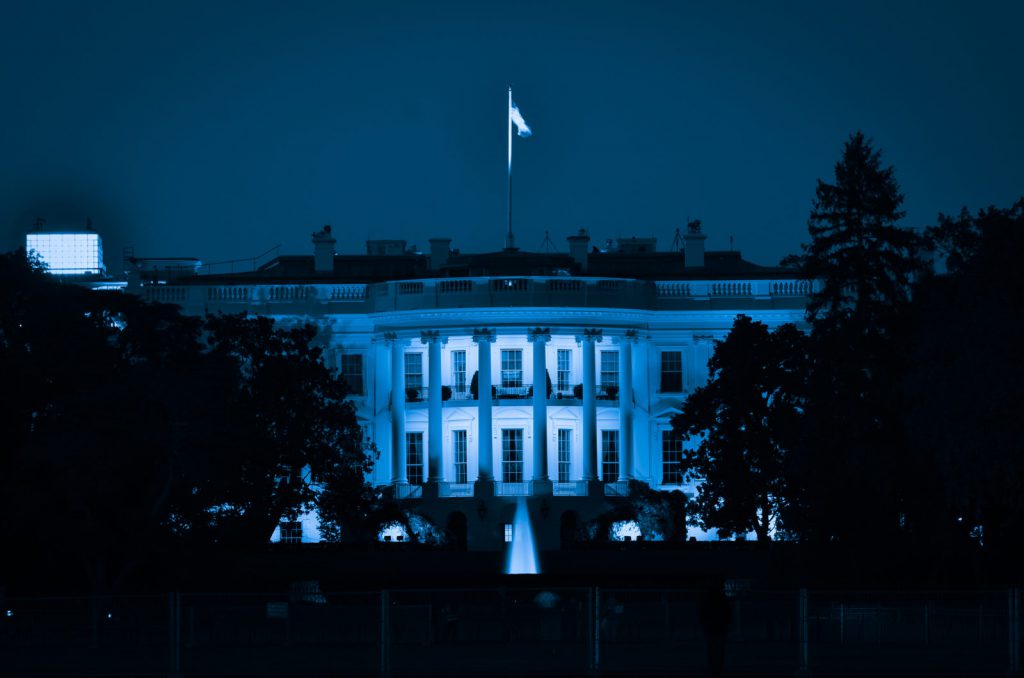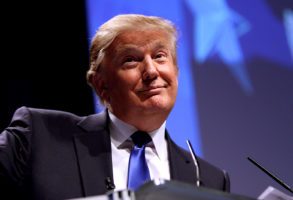
Published October 7, 2017
It’s an odd feeling when you find yourself effectively living on an island unconnected to people with whom you were once politically close. But it’s a feeling with which I’ve become very familiar.
Recent encounters with old political allies and friends have left me not just with a feeling of isolation but a sense that our islands are drifting farther apart. The reason is simple: I am highly critical of President Trump, and that puts me at odds with a vast majority of my fellow Republicans. One illustrative example occurred this summer, when I had several discussions with longtime Republican friends who support the president. These conversations focused on the meeting Donald Trump Jr. had with a person he believed represented the Russian government and who promised to deliver incriminating information on Hillary Clinton.
None of the people I spoke with were troubled in the least by it.
“At best, your side suggests he should have refused to take the meeting,” one person told me. “At worst, he accepted a meeting that he knew might give him material that could be damaging to her. Either way, it’s a big yawn.”
Another person wrote me to say that Mr. Trump “has performed well beyond my expectations even in the face of ceaseless, unprecedented hate and criticism not only from the opposition party but from Republican ‘never Trumpers’ like yourself.”
Obviously, our competing interpretations of Mr. Trump can be traced to the fact that we view him in fundamentally different ways. But because we’ve shared a similar outlook in the past, this divergence is particularly frustrating for my friends now.
In political debates we assume wisdom resides with us and not our opponents. There’s nothing intrinsically wrong with that; it’s the reason we hold the views we do. And so when I see so many Republicans defend Mr. Trump regardless of his actions — invoking defenses that I am certain would enrage them if champions of a President Hillary Clinton had said the same things on her behalf — I’m convinced we’re seeing a severe case of confirmation bias, the tendency to interpret new evidence as confirmation of one’s existing beliefs.
But here’s the thing: What’s easy to see in others is hard to see in ourselves. I can assure myself that my intellectual integrity is superior to theirs, yet in my honest moments I recognize that I struggle with these same human frailties and flaws.
I have some of the same mental habits that I’m critical of in others.
I know it’s a struggle for me to see Mr. Trump, whom I consider to be malicious, in a disinterested way. I know, too, that I’m quick — most Republicans would say much too quick — to home in on his failures, to focus on the things he does that confirm my concerns about him. That doesn’t necessarily mean, of course, that my judgments about Mr. Trump aren’t in the main correct. I believe they are. History will sort out whose judgments were vindicated and whose were not. I’m simply saying that for me to see Mr. Trump from a distance, dispassionately, is impossible. So my views of him, even if they are basically accurate, are also incomplete and probably distorted.
Another example: the Iraq war. When I served in the George W. Bush White House, I believed before the war began that it was justified — that Saddam Hussein possessed weapons of mass destruction, that he was a particularly malevolent and destabilizing figure, and that it was a military conflict that would liberate an enslaved people.
These presuppositions caused me to ignore, much longer than I should have, the problems inherent in our occupation strategy. I didn’t question early enough the errors we made or how the situation was unraveling.
I recall a lunch in early 2006 with a journalist, George Packer, who had just returned from Iraq. A colleague and I, already worried about the course of the war, wanted to hear his firsthand account. What he described was so troubling that my head nearly dropped into my food. In ways I had not fully understood at the time, I had been filtering out information that ran counter to the narrative I believed. (To President Bush’s great credit, in 2007 — in the face of powerful political headwinds — he embraced the so-called surge strategy that turned the war around.)
I relay all this because confirmation bias is far more difficult to overcome than most of us like to admit. We are ever in search of data that confirms what we want to believe. “Illusion is the first of all pleasures,” Voltaire said.
We’re particularly tempted by delusions if they constitute bricks in the walls we have chosen to build and to live behind. We’re also learning that there is a physiological appeal to confirmation bias (processing information that supports our belief system triggers a dopamine rush) and that our brains are hard-wired to embrace or reject information that confirms or challenges our pre-existing attitudes. Our beliefs are also often tied up with our ideas about who we are individually and our group identity. The result is that changing our beliefs in light of new evidence can cause us to be rejected by our political community. No one likes being accused of disloyalty.
But being on the periphery of my party has given me a renewed appreciation for what Lord Tweedsmuir said. “While I believed in party government and in party loyalty,” he wrote, “I never attained to the happy partisan zeal of many of my friends, being painfully aware of my own and my party’s defects, and uneasily conscious of the merits of my opponent.” I’ve found through hard experience that the view can be clearer from the periphery than from the center of power.
Confirmation bias is deepening political polarization, which is already at record levels. Our political culture is sick and getting sicker, and confirmation bias is now a leading toxin.
It won’t be drained from our political bloodstream by conservatives lecturing liberals or vice versa. We have to begin with people in our own tribe, with people who have standing in our lives. We need to emphasize greater epistemological modesty on our side and greater appreciation for the perspectives of the other side. We have to look within and see ourselves and our limitations with fresh eyes.
To say that we all struggle with confirmation bias is not to say that some individuals don’t overcome it better than others or that some aren’t closer to seeing the truth of things better than others. Objective reality exists, truth matters, and we have to pursue them with purpose and without fear. But in our present moment, truth, including truth that unsettles us, has far too often become subordinate to justifying and defending at all costs our own, often unsound, preconceptions.
You can see that in others. But can you see it in yourself?
Peter Wehner, a senior fellow at the Ethics and Public Policy Center, served in the last three Republican administrations and is a New York Times contributing opinion writer.




